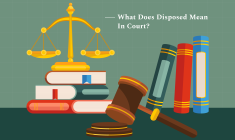The real estate market is thrilling yet confusing. If you are buying your first house, selling a commercial property, or investing in rental units, it’s still very important to know the legal environment that is the basis of any real estate transaction.
Let’s take the example of a real estate firm like dekrupelaw.ca. You see, the first law in real estate sets up the relations between the parties, the rules of conduct, and the procedures for the ownership of the property.
And the legal advice coming from the right person can save you from expensive mistakes. That’s where such a law firm comes into play.
They help people who are in need of a lawyer’s assistance get experienced support that is aimed at making their real estate transactions easier, safer, and clearer.
But what about this real estate law? What about the problems that make this field so complex? And what are some of the things that one must keep in mind?
If these are some of the things that you have been thinking of, then you have come to the right place. So, keep on reading till the end…
The Role of Real Estate Law
Let me start from the basics! So, what is real estate law?
Real estate law, which is also called property law, establishes the parameters that govern the ownership, usage, and transaction of land and structures.
It covers a wide range of topics such as property rights, sales and purchases, rental-tenant relationships, real estate financing, land use regulations, and tax regulations.
In brief, it specifies the legal framework for the way that land and buildings are owned, used, and transferred, and it also guarantees that legal and contractual obligations are observed.
Real estate law covers a wide range of legal topics, including the following:
- Property transfers.
- Purchase agreements.
- Zoning regulations.
- Title searches.
- Mortgages.
- Dispute resolution.
In every transaction, legal documents need to be reviewed, signed, and filed correctly to ensure ownership changes are valid and binding.
Any oversight can result in financial losses or long-term legal complications.
Why Legal Representation Matters In Real Estate Law
While real estate agents are essential for helping you find or market properties, they do not provide legal advice. That’s where a real estate lawyer steps in.
Legal professionals, like those at dekrupelaw.ca, ensure all contractual terms are fair and protect your interests.
They also conduct thorough title searches to confirm there are no liens, encumbrances, or hidden issues with the property.
For buyers, a lawyer reviews mortgage terms, verifies closing costs, and ensures proper registration of ownership.
For sellers, a real estate lawyer manages the discharge of existing mortgages, confirms payment structures, and oversees the closing process.
Common Legal Issues in Real Estate
When there is property, there will be an issue. That brings me to my next point: what are some of the most common issues in real estate law.
Several issues can arise during a real estate transaction:
- Boundary disputes or easements that restrict property use.
- Undisclosed defects or failure to comply with property disclosures.
- Zoning violations or changes in land-use regulations.
- Title issues, such as existing liens or forged documents.
Here are some of the most common issues that you need to take a look at:
Property Title Disputes
Such problems normally lead to situations when no one is quite sure who the rightful owner of the property is. And cases of secrets in the ownership history, inaccuracies in records, or double claims are among the issues that might cause it.
Contractual Disputes
The second one on this list is contractual disputes. You see, the conflict may appear if:
- Contract terms are not clear.
- One party is non-compliant with the terms set.
- One party commits the offense of the contract.
Zoning and Land Use Violations
Committing an act contrary to the local zoning laws can lead you to be fined. For instance, these can include:
- Building a structure higher than the height allowed.
- Using a property for a purpose that is not permitted.
If there is a lack of funds, you may even be forced to get rid of the structures, or you may even be subjected to other legal actions.
Having a lawyer ensures that these concerns are identified early and resolved before closing.
Choosing the Right Real Estate Lawyer
Selecting an experienced, client-focused real estate lawyer is crucial. At dekrupelaw.ca, clients receive not just transactional support but also legal advice tailored to their unique situation.
Whether it’s a residential closing, a commercial lease agreement, or resolving a property dispute, having trusted legal guidance makes all the difference.
Here are some of the things that you should keep in mind when you rae planning to choose a real estate lawyer in Toronto:
1. Experience and Expertise:
Firstly, when you are planning to hire a real estate lawyer, you need to choose someone who is an expert in real estate. In other words, they should be able to have a good grasp of the laws, terms, and conditions of the local area.
Ask about the areas of their job in real estate law which they know best, for example, commercial real estate, residential sales, or property disputes.
Additionally, if you are in Lancaster, consider consulting with estate planning attorneys in Lancaster who can offer specialized knowledge in both real estate and estate planning. This dual expertise ensures that your property transactions align with your long-term financial and estate goals, providing a comprehensive approach to your legal needs.
2. Communication and Availability:
Secondly, select an attorney who can explain things in a way that is easy to understand and keeps you informed all along the way.
Find an attorney who is easily accessible and can respond to your questions and concerns as soon as possible.
They should be people who like to keep communication freely and make your needs their first priority.
3. Fees and Transparency:
Third on the list of things to keep in mind when you’re choosing a real estate lawyer is the fee structure!
Discuss fees and payment methods in the very beginning so that everything is clear. They should give a detailed list of fees and, besides, adapt their services to your budget.
Additionally, you need to make sure the lawyer has a clear way of billing and you know how it will be done.
4. Reputation and Trust:
Finally, get to know the lawyer’s reputation through the feedbacks and positive or negative testimonies on the web.
Get recommendations from the people you know who have worked with real estate lawyers in the past.
Pick a lawyer with whom you feel comfortable and who you believe will be a good supporter of your interests.
Your Legal Guide: Do You Really Need A Real Estate Lawyer?
In conclusion, real estate is one of the largest investments you’ll ever make. Which is why it is best not to leave your transactions to chance.
Now, you might ask if you MUST hire a real estate lawyer or not. I mean, if it is an absolute necessity. Now the answer to this particular question is a YES.
You see, most of the transactions that take place under the real estate law are complex. Most of the time, that’s because of how these transactions involve commercial properties.
Before you think that I am lecturing you on something, let me tell you that it is not compulsory. However, most experts would naturally recommend so.
And that’s because of how these lawyers can provide you with the right legal advice that you need in such transaction cases. With the right legal partner, you can move forward with confidence, knowing your interests are protected at every step.
Read More:
















